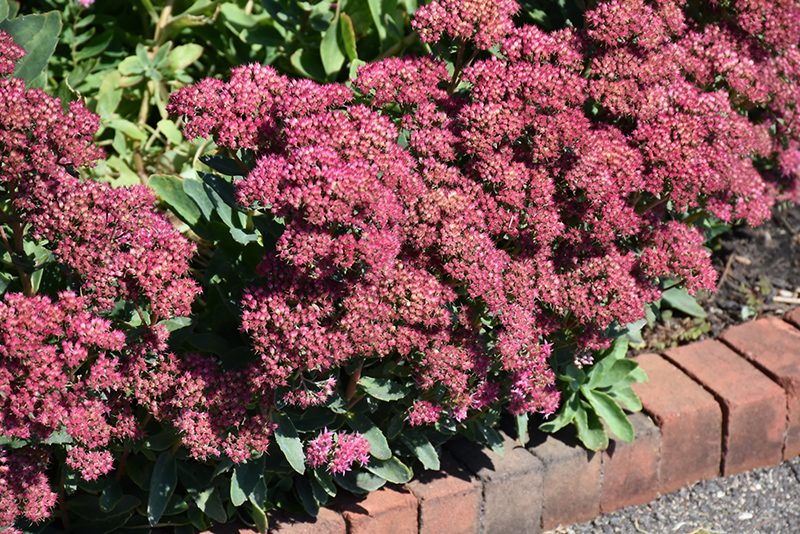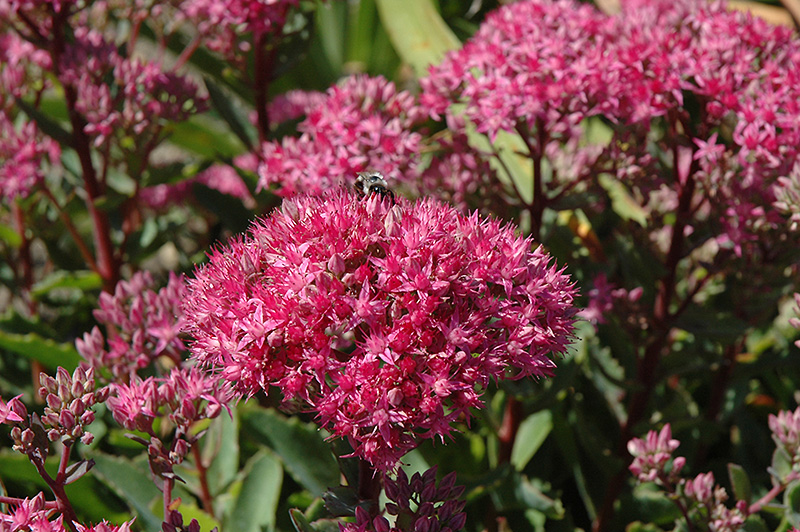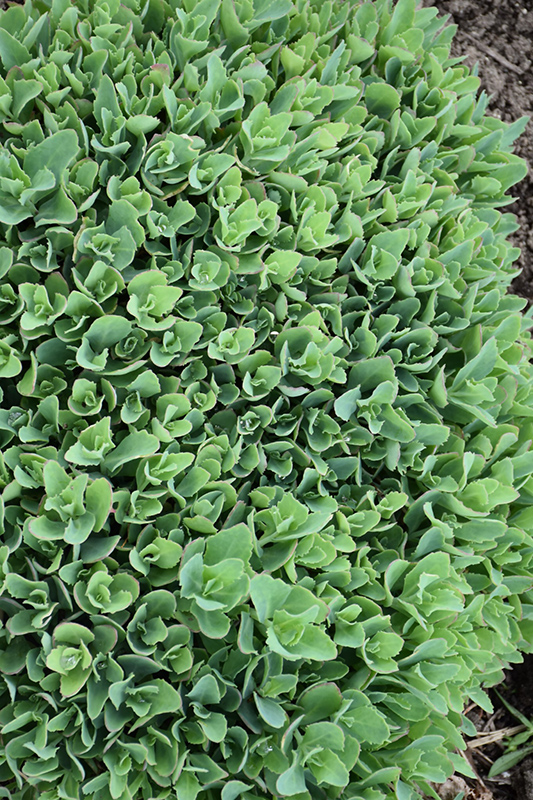Plant Finder
>> Home
Height: 18 inches
Spacing: 18 inches
Sunlight:
![]()
![]()
Hardiness Zone: 3
Other Names: Autumn Stonecrop, Showy Stonecrop
Description:
A compact upright stonecrop with very large magenta-pink bloom clusters held atop of distinct gray-green succulent foliage; a drought-tolerant perennial that does best in poor soils, an excellent choice for late summer color in the garden border
Ornamental Features
Carl Stonecrop is covered in stunning clusters of hot pink flowers at the ends of the stems from late summer to mid fall. The flowers are excellent for cutting. Its attractive succulent round leaves remain grayish green in color throughout the season. The brick red stems are very colorful and add to the overall interest of the plant.
Landscape Attributes
Carl Stonecrop is a dense herbaceous perennial with an upright spreading habit of growth. Its medium texture blends into the garden, but can always be balanced by a couple of finer or coarser plants for an effective composition.
This is a relatively low maintenance plant, and is best cleaned up in early spring before it resumes active growth for the season. It is a good choice for attracting bees and butterflies to your yard, but is not particularly attractive to deer who tend to leave it alone in favor of tastier treats. It has no significant negative characteristics.
Carl Stonecrop is recommended for the following landscape applications;
- Mass Planting
- Rock/Alpine Gardens
- Border Edging
- General Garden Use
- Groundcover
- Container Planting
Planting & Growing
Carl Stonecrop will grow to be about 16 inches tall at maturity, with a spread of 24 inches. When grown in masses or used as a bedding plant, individual plants should be spaced approximately 18 inches apart. Its foliage tends to remain dense right to the ground, not requiring facer plants in front. It grows at a fast rate, and under ideal conditions can be expected to live for approximately 15 years. As an herbaceous perennial, this plant will usually die back to the crown each winter, and will regrow from the base each spring. Be careful not to disturb the crown in late winter when it may not be readily seen!
This plant does best in full sun to partial shade. It is very adaptable to both dry and moist growing conditions, but will not tolerate any standing water. It is considered to be drought-tolerant, and thus makes an ideal choice for a low-water garden or xeriscape application. It is not particular as to soil pH, but grows best in poor soils, and is able to handle environmental salt. It is highly tolerant of urban pollution and will even thrive in inner city environments. This particular variety is an interspecific hybrid. It can be propagated by division; however, as a cultivated variety, be aware that it may be subject to certain restrictions or prohibitions on propagation.
Carl Stonecrop is a fine choice for the garden, but it is also a good selection for planting in outdoor pots and containers. It is often used as a 'filler' in the 'spiller-thriller-filler' container combination, providing a mass of flowers and foliage against which the larger thriller plants stand out. Note that when growing plants in outdoor containers and baskets, they may require more frequent waterings than they would in the yard or garden.


